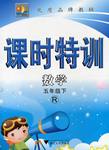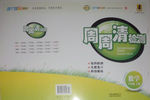题目内容
Nobody likes feeling lonely,and isolation (孤立) isn’t only a psychological problem. Loneliness increases a person’s risk of death by 26 percent,an effect comparable to the health risks posed by obesity.
So some researchers are investigating what it is,exactly,that makes lonely people stay lonely. One long-held theory has been that people become socially isolated because of their poor social skills — as they spend more time alone,the few skills they do have start to fail from lack of use. But new research suggests that this is a fundamental misunderstanding of the socially isolated. It's just that when they’ re in situations where they need those skills the most,they choke.
Professor Megan L. Knowles and her team tested the social skills of 86 undergraduates,showing them 24 faces oif a computer screen and asking them to name the basic human emotion each face was showing: anger,fear,happiness,or sadness. In the end,the lonelier students did worse than the non-lonely students on the emotion-reading task — but only when they were told they were being tested on their social skills. When the lonely were told they were just taking a general knowledge test,they performed better than the non-lonely.
So the lonelier people are,the better they are at accurately reading facial expressions and decoding tone of voice. Lonely people may be paying closer attention to emotional cues (暗示) precisely because of their willingness to belong somewhere and form interpersonal connections,which results in technically superior social skills.
This presents a fairly new way to think about lonely people. It's not that they need to improve the basics of social skills,which they,ve likely already shared. Instead,lonely people may need to focus more on getting out of their own heads,so they can actually use the skills they’ve got to form friendships and begin to find a way out of their isolation.
29. According to the traditional point of view,why do lonely people stay lonely?
A. They are happy to stay alone.
B. They are difficult to get along with.
C. They have few chances to practice social skills.
D. They are likely to misunderstand others’ opinion.
30. In the test mentioned in Paragraph 3 ,the lonely performed better when they.
A. felt not very lonely
B. were under great pressure
C. were told it was a test on social skills
D. did not know the real purpose of the test
31. Compared to non-lonely people,lonely people.
A. can better control their emotions
B. can better express their emotions
C. can better read people's emotions
D. can better handle people’s emotions
32. What inspiration may lonely people get from the text?
A. Be brave to make friends.
B. Show sincerity in friendship.
G. Find ways to learn social skills.
D. Make good use of your lonely time.
(人际关系)
本文是说明文。一项研究表明孤独的人更擅长解读人的情感。
29. C.细节理解题。由第二段中的 One long-held theory ... the few skills they do have start to fail from lack of use可知,传统观点认为,孤独的人之 所以孤独是因为他们缺少与人交往 的机会 > 导致社交技能退化。
30. D.细节理解题。由第三段末句 When the lonely were told they were just taking a general knowledge test,they performed better than the non-lonely可知,当孤独的人不知道 测试的真实意图时他们在测试中的 表现更好。
31. C.推理判断题。由第三段中的实 验结果及第四段首句So the lonelier people are,the better they are at accurately reading facial expressions'and decoding tone of voice 可推断,孤 独的人更擅长解读人们的情感。
32. A.推理判断题。由最后一段中的 lonely people may need to focus more on getting out of their own heads,so they can actually use the skills they’ve got to form friendships …可 推断,孤独的人应该勇敢地交友。

 名牌中学课时作业系列答案
名牌中学课时作业系列答案 明天教育课时特训系列答案
明天教育课时特训系列答案 浙江新课程三维目标测评课时特训系列答案
浙江新课程三维目标测评课时特训系列答案 周周清检测系列答案
周周清检测系列答案